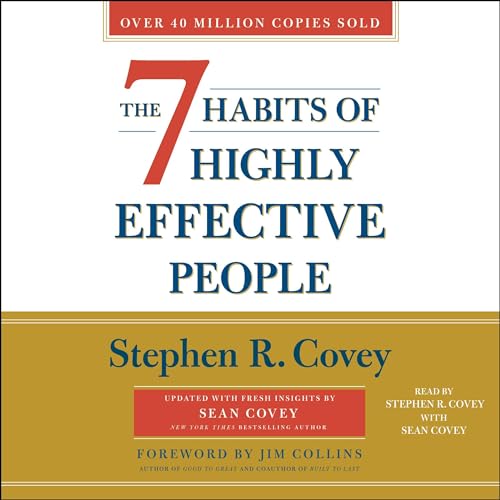
Stephen R. Covey’s self-help book “The 7 Habits of Highly Effective People” was originally released in 1989. As a timeless manual for attaining success and contentment in both personal and professional life, Covey’s book has become a classic in the field of personal development literature.
The book by Stephen Covey is broken up into many sections, each of which focuses on one of the seven habits he considers essential to personal effectiveness. These habits are basic principles that guide human behavior and help people achieve long-term success, not just tactics or methods.
Habit 1: Take Initiative
The first habit Covey talks about is taking the initiative. He places a strong emphasis on accepting accountability for one’s own life and deeds as opposed to reacting to outside events. Proactive people take the effort to mold their lives in accordance with their beliefs and objectives because they understand that they have the freedom to choose how they react in every given circumstance.
Habit 2: Start by thinking about the end.
The idea of vision and goal-setting is central to the second habit. Before acting, Covey advises readers to be clear about their principles and long-term goals. People may make sure they are working toward what really important to them by starting with the end in mind and coordinating their activities with their final aims.
Habit 3: Prioritize what matters most.
Setting priorities and managing time are key components of putting first things first. Covey presents the idea of the “time management matrix,” a system of assigning priorities and deadlines to activities. People can escape the trap of responding to crises by concentrating on tasks that are significant but not necessarily urgent, and instead use their time to work toward long-term objectives.
You know you can get the audiobook version of The 7 Habits of Highly Effective People for FREE at Audible.com.
4th Habit: Consider Win-Win
A win-win mentality looks for ways to improve all relationships for both parties. True success, according to Covey, results from teamwork and cooperation as opposed to rivalry. People may establish enduring relationships and succeed over time by adopting an abundant mindset and looking for solutions that benefit all parties.
Habit 5: Try to Understand Before You Can Be Understood
The sixth habit focuses on communicating effectively. Covey stresses that listening to people with empathy is more important than trying to understand them. People may develop rapport and trust with one another, which will lead to more meaningful and fruitful interactions, by first making an effort to comprehend the viewpoints and concerns of others.
Habit 6: Combine
The foundation of innovative collaboration and teamwork is known as synergy. Covey shows readers to value variety and use one another’s advantages to accomplish common objectives. Through the integration of their unique skills and viewpoints, people may generate a synergistic effect that improves group performance and generates creative solutions.
Habit 7: Hone Your Saw
The last habit highlights the significance of ongoing development and self-renewal. Covey employs the metaphor of “sharpening the saw” to highlight the need of people taking care of their mental, emotional, physical, and spiritual health. Long-term effectiveness may be sustained by individuals via self-care and personal development investments.
Covey uses exercises, real-world examples, and stories to help readers comprehend and implement these habits in their own lives throughout the book. He highlights how the seven habits are related to one another and support one another, creating a comprehensive strategy for both professional and personal efficiency.
In summary, millions of readers worldwide have been profoundly impacted by “The 7 Habits of Highly Effective People“. People may create higher effectiveness, fulfillment, and success in all areas of their lives by internalizing and incorporating the timeless ideas of Stephen Covey into their everyday routines. Covey’s message, which offers timeless guidance for managing the complexity of the modern world, is still relevant now just as it was when the book was originally published.


